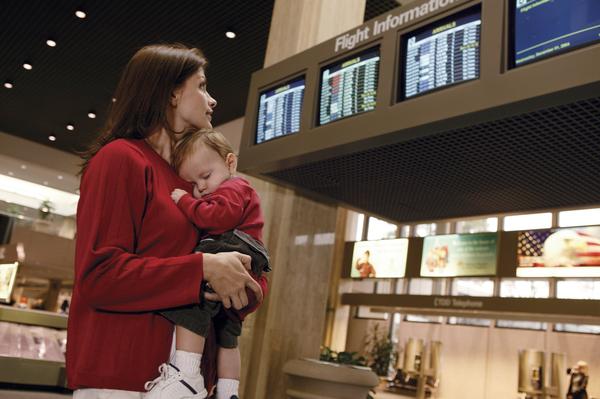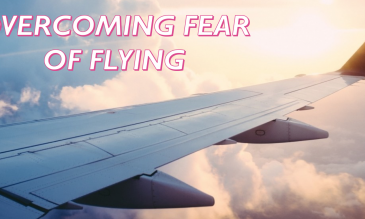A considerable number of parents successfully travel with their babies nowadays. Even though it is NOT AS SMOOTH A RIDE AS WHEN ADULTS TRAVEL ALONE, everything may go cool, calm, and collected provided you follow some common sense tips and comply with the specific requirements set by The US Transportation Security Association regarding INFANT TRAVELING. Therefore, we aim to introduce you to these rules so that you do not have to hunt high and low trying to figure out which standards you have to comply with or what items you’re alone aboard the plane. First, let’s just make a general remark and point out that, as a general rule, TSA is the US agency which establishes which particular standards apply to any airline passenger, babies included. Besides, despite their technicality, our overall impression is that the agency set these rules with the idea that an ounce of common sense is worth a pound of theory.
This means that there is no esoteric point behind them. They are addressed to the COMMON TRAVELER and are expressed accordingly. You only have to pay attention to what they say and simply observe them. First and foremost, you need to arrive at the airport well in advance so that you have plenty of time to deal with all the check-in procedures and, why not, to make a last trip to the bathroom with your baby. After all, a clean baby is a happy baby, right?
Age Limitations
If you’re traveling with your newborn baby, you need to know that the majority of the airlines do not accept infants under the age of 7 days. You need to check with the airlines when you consider your itinerary.
For instance, American Airlines accepts infants two days after they were born but recommend that you should wait until the baby is at least seven days. On the other hand, United Airlines does not accept infants in incubation or babies less than seven days old.
Delta Airlines will allow you to travel with your less that 7 days baby provided you show them a letter of approval from your physician. Furthermore, Southwest Airlines will require a medical release for travel for any baby under 14 days old. Overall, we may point out that these policies only differ slightly.
Buying A Ticket For Your Baby
The airlines have their own ticketing procedures. The majority of the airlines, i.e. American Airlines, United Airlines as well as Southwest Airlines, will give you two options. You may opt for buying a seat so that your baby may travel in his or her CRS. Southwest Airlines will ask you to get a boarding pass for your baby in this case.
You may also choose to travel with your baby on your lap. You won’t pay an extra fare in this case. This latter rule applies to domestic flights only. Moreover, you’ll also need to bring along a copy of your baby’s certificate of birth to document his or her date of birth. Airlines also limit each paying adult passenger to one nonpaying baby.
United also provides that all the babies who travel internationally need to have a ticket, even though they travel as a lap child. On the other hand, American Airlines will not allow a reservation for a baby traveling as a lap child.
Security Scanning
According to TSA regulations, all the plane passengers, be them babies, passengers with reduced mobility and so on, are required to go through the scanning procedures. All the equipment such as strollers, umbrella-strollers, baby carriers, baby slings will have to go through the X-ray scanner.
TSA also warns that you won’t be able to leave your baby in his or her stroller and put it through the X-ray machine. You’ll need to hold your baby in your arms and walk through the metal detector.
Baby Food, Medications And Other Baby Care Items
In keeping with the TSA 3-1-1 rule for carry-ons, the liquids, gels and aerosols which you may carry aboard need to be placed in containers no larger than 3.4 oz. Nevertheless, if you’re traveling with your baby, you are allowed to bring breast milk, baby formula or even medicine in reasonable quantities exceeding 3.4 ounces (100ml). You’ll still have to declare them for inspection and also be prepared to be asked to open them.
In so far as formula or breast milk is concerned, you should know that security officers will not test or even taste it. Apart from formula or breast milk, you may also take baby food in your hand baggage. Taking baby food with you may prove to be a good idea especially in case of LONGER FLIGHTS.
TSA does not specifically limit the amount of liquid medications, allowed in your carry-on but specifies that you should only carry on the medically necessary liquids and gels needed for your baby’s immediate comfort during the flight. These will also have to be declared to the security officers and may be inspected additionally.

 En
En Es
Es Fr
Fr











